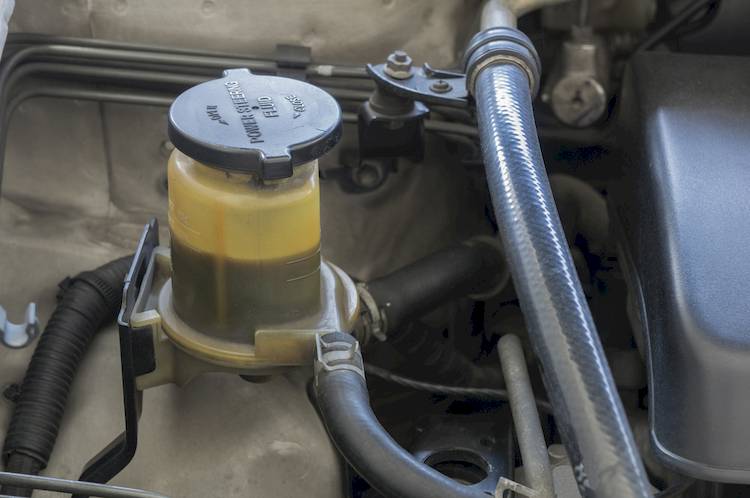

Chances are good that your car’s power steering system is hydraulic – most of them are. Electronic power steering (EPS) is becoming more common, and older, manual style systems are still out there, but hydraulic systems are by far the most common.
What that means is that your power steering system relies on a reservoir, a pump, and a series of lines and hoses to get the fluid from the reservoir to the power steering rack and back. Those hoses include high-pressure lines (metal) and low-pressure lines (rubber). Both are subject to wear and tear, and will eventually need to be replaced.
Your car’s power steering hoses are in use any time the engine is running. If the engine is running, then power steering fluid is cycling through the system. When you turn the wheel, pressure is increased from the pump to reduce the effort needed to steer, but fluid is always present in the system.
Both metal and rubber hoses are subject to high temperatures, as well as caustic power steering fluid, varying amounts of pressure and other threats that will eventually degrade the system. While there is no specified lifespan for a power steering hose, they are normal maintenance items and should be inspected regularly. They should be replaced when signs of wear are noticeable, or when a leak develops.
If your hoses wear too much, it’s possible that one or more will fail while driving. This will cause a loss of steering assist, making the steering wheel harder to turn (but not impossible). It will also cause a power steering fluid leak. This fluid is flammable, and can ignite if it comes into contact with a very hot surface (such as your exhaust).
Some of the more common signs and symptoms to watch for that might indicate a problem include the following:
- Cracks in the rubber
- Rust on the metal lines or connectors
- Bulges in the rubber
- Moisture or other signs of leakage at hose ends or anywhere on the body of the hose
- The smell of burning fluid
- Low power steering fluid level in the reservoir
If you experience any of the symptoms, a certified mechanic can help to inspect, diagnose and fix the problem with your power steering system.



